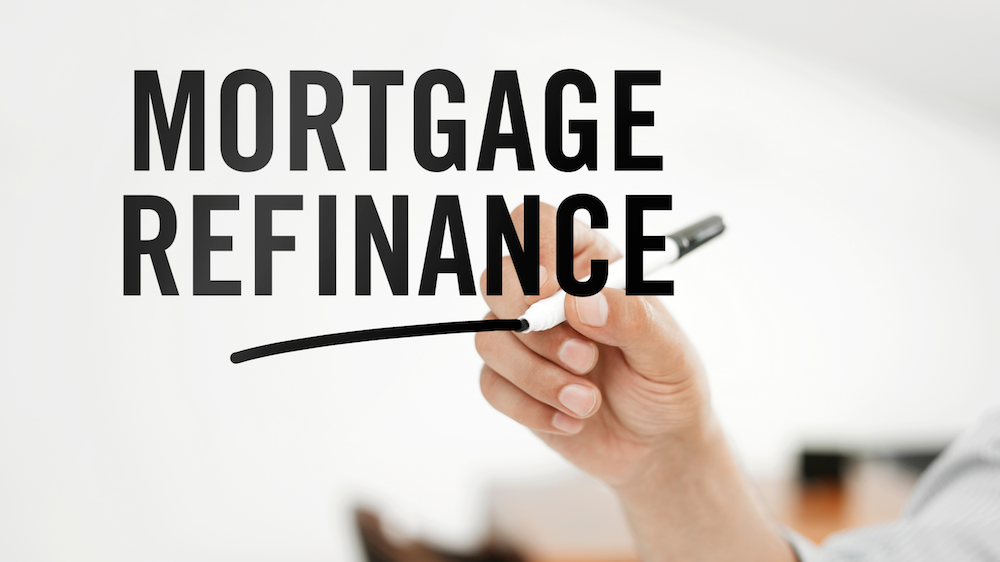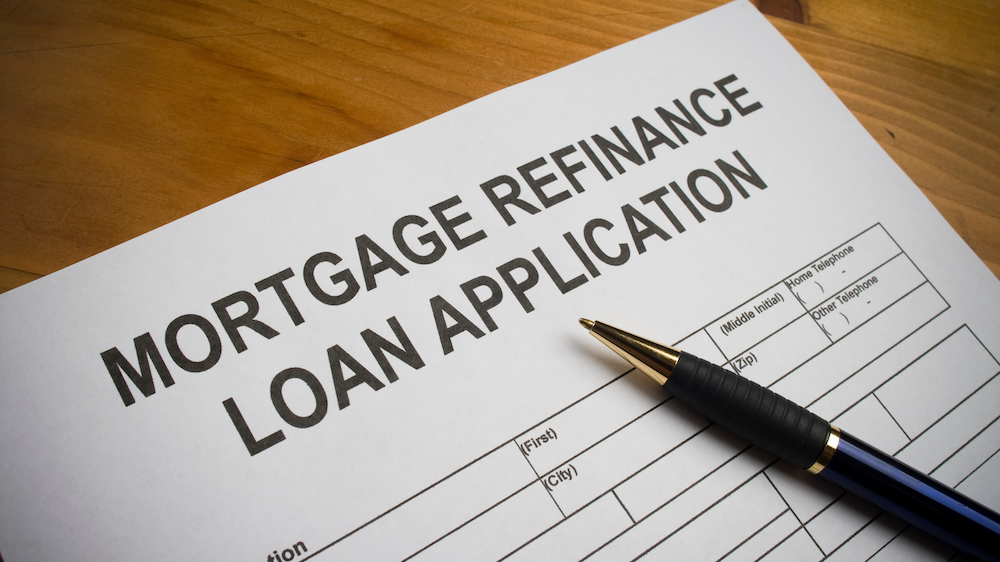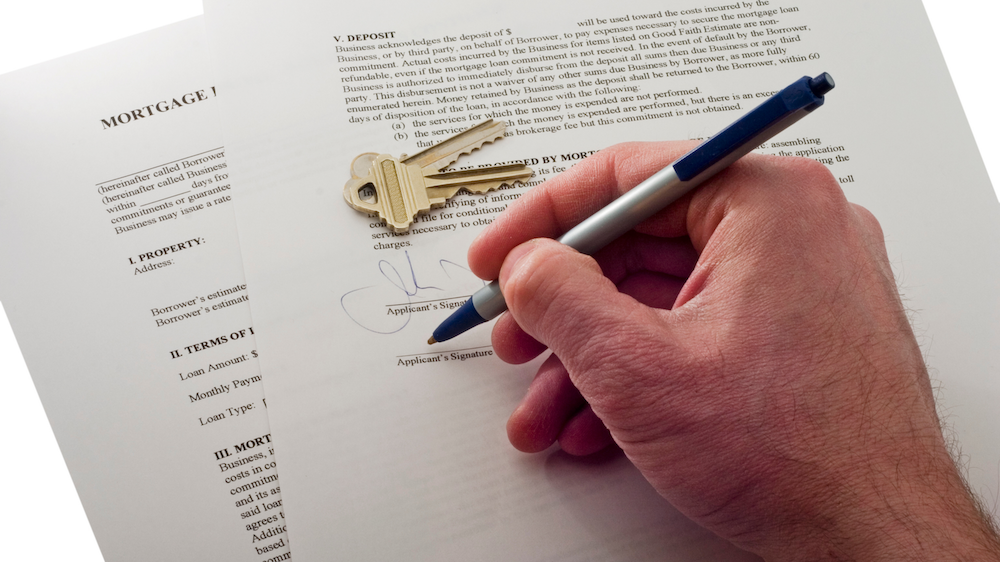
When To Refinance Mortgage: Things To Consider
Refinancing your mortgage is when you pay off an existing loan and replace it with a new mortgage. If you’re thinking about refinancing, you’ve probably come across some polarizing viewpoints.
Without adequate research and consultation with mortgage professionals, refinancing your home can lead you into a cycle of debt. But with the right objectives and information, it can end up saving you thousands of dollars just within the first decade.
This is one of the biggest financial decisions you may find yourself having to make in life. If you find yourself confused then our guide is here to help! We’ll discuss exactly when to refinance mortgage and what you’ll have to consider before doing so.

Reasons For Refinancing
It’s a good idea to have clear objectives about why you want to refinance your mortgage in the first place. The process of refinancing can cost 2% to 5% of your loan’s principal, so you’ll want to make sure you’re making an informed decision before diving in. Here are the most valid reasons to refinance:
Lower Interest Rates
Changes in market conditions or an improvement in your credit score may allow you to get a lower interest rate on your mortgage. This is ideal because it means you may be able to save money in the long run since interest is directly connected to your monthly payments.
A lower mortgage interest rate means more of your monthly payment will go towards paying off your principal. This will enable you to build home equity quickly and save more money.
Professionals recommend refinancing for this reason if you can get a reduced rate of at least 1-2%. Anything less than 1% may not be worth it with the application and closing costs you will incur. It’s also important that you check out refinancing calculators and consult with your lender to find out if you’re getting the best deal or not.
Shorter Mortgage Term
When you refinance your mortgage, you're getting a whole new deal. This means you’ll have the opportunity to opt for a shorter term.
If you have a 30 year mortgage and have been paying for 5, refinancing to a loan with the same term length will leave you having to pay for a total of 35 years. Whereas if you refinance to a new 15 year loan, your 30 year loan will be cut down to 20.
By opting for a shorter-term mortgage when you refinance, you’ll be paying your loan off quicker while also decreasing your total interest costs. Note that this may increase your monthly payment. If your objective for refinancing is to pay off your loans quicker, then this is the right option for you.
Ideally, you’ll want a loan with both a lower interest rate and shorter term. Get a cost estimate using a refinancing calculator so you know what you may be spending and saving with a shorter mortgage.
Converting From Adjustable-Rate Mortgage To Fixed Rate Or Vice Versa
With adjustable rate mortgages or ARM, your monthly payment will change as interest rates change. These may cause spikes in payments that you may not be able to afford. One way to avoid this instability is to switch to a fixed rate mortgage.
Fixed rate loans often make it a lot easier for people to budget their money long term. In some cases, however, borrowers may be unhappy with their fixed rate terms and will want to switch to an ARM with better terms. If you do this, ask your bank about the initial rates of interest, fully indexed rates, adjustments in rates, and monthly payment you may face during the term.
Cash-Out On Home Equity Build-Up
Home equity is the value of your current home minus what you owe on your mortgage. If the current interest rate is lower than the rates on your old mortgage, you can tap into your home equity with cash-out refinancing.
People often do this to cover big expenses like paying for their child’s college education, remodeling of their home, or for financial emergencies. Many homeowners also refinance to reconsolidate debt, including what you owe on credit cards or car loans.
Though your home can serve as a valuable source of money, increasing the years you’ll be paying your mortgage is not a good idea. Taking out home equity also means you own less of your home. Another thing to note is that you often won’t see the fruits of refinancing immediately, so if you’re looking to recoup quickly, you may want to consider alternatives.

When Is It Smart To Refinance?
Now that we’ve covered the reason or objective for you to refinance your mortgage, you’ll want to assess your current circumstances. If you’re ticking all the following boxes, then you’re on the right track.
- Current interest rates are at least 1 - 2% lower than your existing interest rates. Any less will not be worth the money in the long run with what you’ll have to spend to refinance in the first place.
- You plan on staying in your home for more than 5 years. It can take this long for you to reap the benefits of a mortgage refinance.
- You anticipate being approved for the refinance loan. Just like any other loan, banks and lenders will assess your eligibility – make sure you’re staying on top of your credit score, mortgage payments, and debt on credit cards.
- You can afford all the refinance and closing costs of your new mortgage.
- Your monthly savings can offset the cost of refinancing and changes to your monthly mortgage payments.
When Is It A Bad Idea?
- You have already had your mortgage for a long time. The longer you’ve been paying your mortgage, the more your payments go to the principal amount. This means that you’re building equity over time. By refinancing you’ll restart the amortization process, which means you’ll be back to paying more towards the interest rate and building less equity.
- Your current mortgage has a prepayment penalty. Some lenders impose a prepayment penalty fee which stops you from paying mortgages early – including refinancing. If your lender won’t waive the fee, this is more money you’ll be losing and more time wasted before you break even.
- You plan to move from your home in the next few years. As we’ve discussed, it takes a while to see the savings you gain if you refinance, so it may not be worth the costs of refinancing if you plan to move to a new home in the near future.

What Will Refinancing Cost?
A major determiner for you to decide when you should be refinancing your mortgage is whether you can afford the process upfront. Lenders indicate that you will typically have to pay around 2% to 5% of your outstanding principal.
Here’s a breakdown of the likely expenses provided by the Federal Reserve Board, which you will need to refinance a mortgage:
Application Fee
This fee covers the processing of your refinance requests as well as the review of your credit report. This may not be reimbursed if your application is denied, so review all the requirements and prepare well. This fee ranges from $75 to $300.
Loan Origination Fee
This is charged by your lender to evaluate and prepare your refinance loan. This will cost between 0% to 1.5% of your loan principal.
Loan-Discount Points
This is a one time charge paid to reduce the interest rate on your loan. A point is equivalent to 1% of your loan. Some lenders and brokers may also charge points to earn money on loan. This can be negotiated with your lender. These rates range between 0% and 3% of your loan principal.
Appraisal Fee
Lenders will have to ensure that your home is worth the amount you intend to borrow, which they do with an appraisal. Sometimes this fee is included in your refinance application, so you’ll have to check with your lender to make sure.
You are entitled to ask for a copy of the appraisal. If you’ve recently been appraised you can ask if the lender will waive this requirement for a new one. This will cost between $300 and $700.
Inspection Fee
Some lenders will require an inspector, engineer, or consultant to do a thorough inspection of your home. This includes checking for termites, structural condition, septic system, water system, and pest inspection. Depending on your state, this can cost you between $175 and $300.
Attorney Review And Closing Costs
Your lender will usually charge you for a lawyer that will conduct the closing of the process. Closing costs and lawyers will set you back between $500 to $1000.
FHA, RDS, VA Or PMI Fees
If you’re taking out loans of more than 80% of your home’s value and are insured by federal government housing programs and conventional loans, you may be charged an extra fee. These rates are charged as follows:
- Federal Housing Administration (FHA) = 1.5% plus 1/2% per year
- Rural Development Services (RDS) = 1.75%
- Department of Veterans Affairs (VA) = 1.25% to 2%
- Conventional loans by Private Mortgage Insurance (PMI) = 0.5% to 1.5%
Title Search And Title Insurance
Your lender will have to review property records to ensure that you are the rightful owner or to check for liens. This cost covers the review and protects your lender’s loan investment from problems or errors that may arise. This will cost from $700 to $900.
Survey Fee
This is to survey the location of buildings and improvements on the land, which verifies to lenders that the property is legally where you say it is. Some require a more complete and costly search. If your home has been recently surveyed, your lender may waive this fee. This fee ranges from $150 to $400.
Prepayment Penalty
Your original lender may charge you a penalty fee if you refinance or pay off your mortgage early. Sometimes this fee can be waived.
It is important to note that mortgages issued by the federal government, federal credit unions, and certain states are not allowed to charge a prepayment penalty. Penalties may cost between 1 to 6 months in interest payments.
"No-Cost” Refinancing
If you can’t afford all the upfront costs listed above or don’t plan on staying in your current home long-term, there is one other possible refinance option called “no-cost” refinancing.
Some lenders offer this option, which means they take care of all of these costs for you so you don’t have to shell out thousands before you begin your monthly payment.
What this means, however, is that lenders will either charge you a higher interest rate or roll these fees into your loan. You end up repaying these fees throughout your mortgage term. Make sure you have a thorough discussion with your bank about where they integrate these fees and what other conditions they may impose.

Tips And Considerations
- It’s wise to consult a loan or mortgage broker before you begin your application. They can help calculate refinance costs so you know if it’s worth it and how much money you could save on your home. Refinance calculators may also work to give you an initial figure.
- Banks will always check your credit score, income, and home equity. Knowing if you can qualify for a refinance beforehand will save you money on rejected applications and fees.
- Be aware that lenders that offer “no-cost” refinancing often include prepayment penalty fees and higher rates. Make sure all the fees and penalties are explained thoroughly to you before agreeing.
- Shop around and compare loans before deciding. Be mindful that ads are meant to look as attractive as possible with low rates and flexible terms. You’ll want to get all the facts and consult with financial advisers, housing counselors, or an attorney before agreeing to a deal.
- If you don’t know where to start, talk to your current lender. In order to keep your business, they may be willing to reduce or waive certain fees.
Conclusion
The decision to refinance is a major financial move for anyone and may involve a lot of money upfront. You need the right research and information to decide when you should do it and if it’s a good idea for your situation.
By speaking to the right professionals, you’ll be getting a full picture of how to get the most out of your money. Contact us at Wesley LLC and we’ll walk you through the process and provide you with all the answers you need!